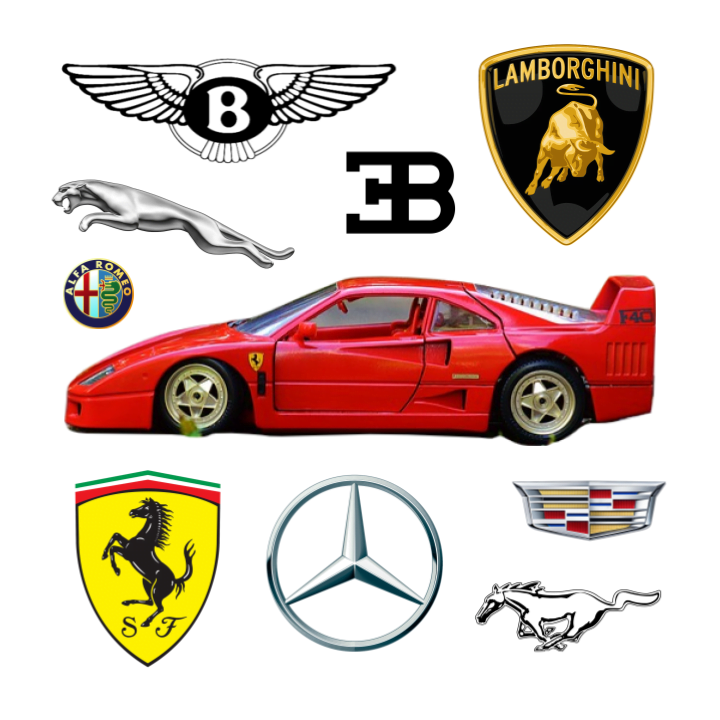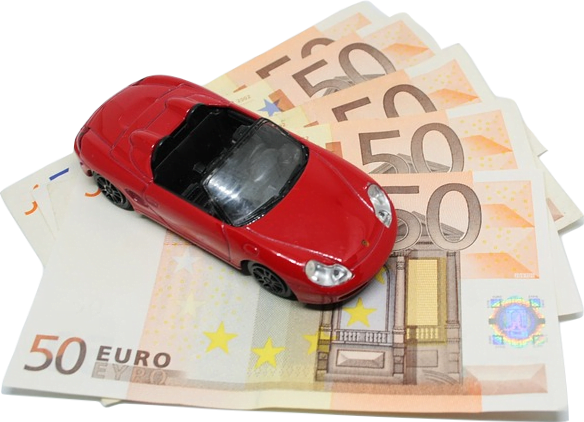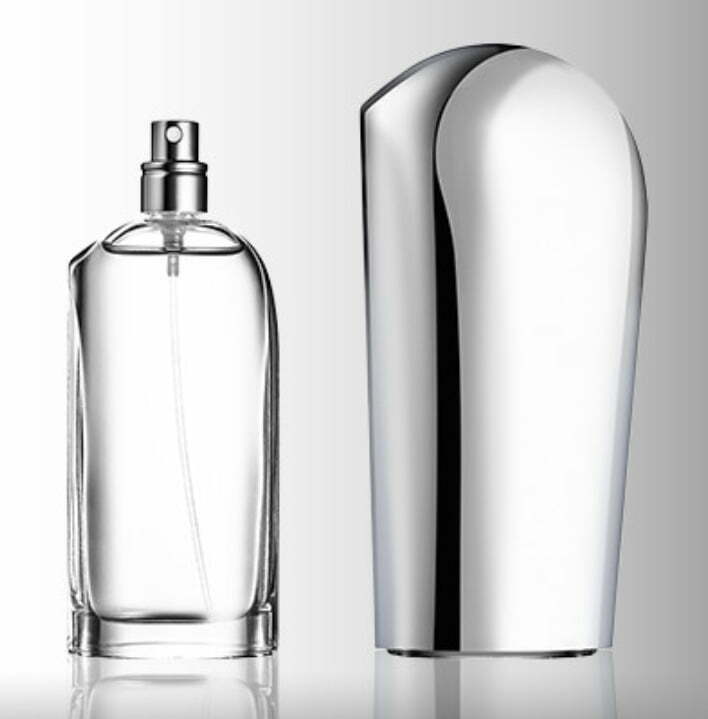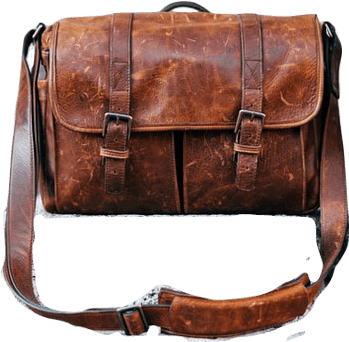Here’s Why Luxury Car Brands Make Perfumes and Colognes

Ferrari. Bugatti. Ducati. Lamborghini. Mustang.
What do all these brand names have in common?
They’re all luxury car brands, you say? What? No. They’re all luxury car brands with a fragrance line.
And they’re not alone. Almost every luxury car maker you can think of has put out at least a couple of perfumes or colognes.
But why? Why are car manufacturers, of all people, making so much fragrance?

It turns out that saying automobile manufacturers “make” perfumes and colognes is a bit of a misnomer. What’s actually going on under the hood is something called brand name licensing. The car brand decides they want a fragrance line, meets up with a fragrance company, and gives them permission to slap its name on the bottle in exchange for a hefty cut of the profits.
This is the same process that celebrities usually use to set up their own fragrance lines. Most pop stars, actors, and football players aren’t particularly invested in the artistic makeup of their fragrance line. Do you really think that Billie Eilish or Nicki Minaj or even Donald Trump are spending long hours passionately outlining the exact vision they have for their fragrances?
(There are, of course, exceptions to the rule. Sarah Jessica Parker has released a remarkable line of curated and unique scents over the years, crowned with the incredibly popular Lovely, thanks in no small part to her heavy involvement in the creative process behind the scents. And Britney Spears was more involved in the marketing of her fragrances than most, which helped make Fantasy and its flankers the iconic pillar of designer perfume they are today.)
Generally speaking, though, brand name licensing deals are fairly hands-off on the part of the brand, meaning there probably isn’t an executive in the Bugatti C-suite banging on the table and demanding they formulate a complex, vintage-styled chypre. Instead, celebrities and luxury goods manufacturers cut deals with large fragrance and cosmetic companies like Estée Lauder for them to create and market the scents.
But why do they do it?
For an automobile manufacturer, releasing a perfume or cologne is purely a branding move. Many brands (including individuals as brands, like influencers and celebrities) release merchandise for branding and profit. It gets their name out there, allows fans to purchase something from their favorite company, and also happens to generate a ton of revenue, especially when margins are large.
Essentially, Mercedes-Benz putting out a cologne is kind of like the luxury car company version of your favorite YouTuber putting out sweatshirts and hats with their logo on them.
But why fragrance? Why not sweatshirts and hats?
Well, many luxury automobile lines do also maintain their own (ridiculously priced) clothing lines. But fragrance has two advantages over more conventional types of merch.
First, perfume and cologne are viewed as luxury goods, with a bit more class than, say, a Cadillac-branded drawstring bag or plastic water bottle.
Secondly, the margins in the fragrance industry are already sky-high. This means luxury automobile brands can put out an expensive product that fetches them a large amount of profit while looking right at home and even comparatively affordable alongside other fragrance products.
Perfumes and colognes aren’t the only weird merch luxury car brands have put out over the years. Watches, eyewear, and purses and handbags have all had their moments in the automobile manufacturer sun.
And automobile manufacturers aren’t the only luxury brands dabbling in fragrance. Floral arranger Grandiflora, fountain pen producer Montblanc, chocolatier Coppeneur, hotel and casino change Caesars World, and even Cathay Pacific Airways are just a few of the many pricey brands dabbling in scent.
But as a group, luxury automobiles are remarkably all-in on fragrance. While you might have a chocolatier or hotel or airline here and there with a scent, almost every single brand of luxury car has fragrances, and they usually have more than one.
Here’s an alphabetized list of all the automobile manufacturers I could find with a fragrance line:
- Alfa Romeo
- Bentley
- Bugatti
- Cadillac
- Ducati
- Ferrari
- Harley Davidson
- Hummer
- Jaguar
- Lamborghini
- Mazda
- Mercedes-Benz
- Mustang
- Porsche
Of these, all are considered luxury names, with the notable exception of Mazda.
If you’re curious, Mazda has exactly one fragrance, a limited 2017 release called Soul of Motion that won a prestigious iF Product Design Award for its bottle. Incidentally, of all the car colognes I’ve researched so far, this one interests me the most, with its zen, design-conscious aesthetic and blend of woody and aromatic notes, but it’s actually been quite hard to find. It appears that all 1,150 bottles of the fragrance were bought up after all. (The same cannot be said for various limited releases coming out of NFT projects in recent years.)

Funny that the single fragrance release from the one non-luxury car brand ends up being more exclusive and awarded than all the rest combined, eh?
Formula 1 Racing also has its own significant fragrance line, currently carrying fifteen different perfumes and colognes.
One reason might be that automobile companies are remarkably keyed in to scent marketing. “New car smell,” after all, is a well-known and beloved phenomenon. The automobile industry single-handedly turned what might have otherwise been a negative — leftover fumes from the manufacturing of a car — into a status symbol conveying novelty and luxury.
That’s quite a feat. In what other industry is the stinking plastic smell of manufacture widely regarded as a good thing?
And yet, people love the smell of new cars. This, doubtless, leads automobile makers, especially those trying to sell super expensive luxury products, to pay attention to scent as a marketing and merchandising tool.
Scent marketing isn’t just the stuff of fiction books like Erica Bauermeister’s The Scent Keeper anymore. Smells in and around stores have a significant, quantifiable impact on the way people shop. Luxury car makers looking to imbue their dealerships with glamor are always on the hunt for ways to make their spaces feel more classy and luxurious.
This leads to luxury car brands being on the cutting edge with scent marketing. And if they’re looking to develop a custom room spray for their dealerships, one idea leads to another, and boom. Alfa Romeo has a fragrance line.
That’s my argument, anyway. In reality, a number of different factors could have led to several luxury car brands getting into fragrance, which then led the rest to jump in, in order to keep up.
Regardless, fragrance is a very lucrative merchandising opportunity with a polish of luxury that befits these pricey auto brands. It’s a way of extending the brand and making more money without watering down its luxury by making cheaper cars. Your Formula-1-racing-obsessed little cousin probably can’t afford a Ferrari, but he can afford a Ferrari cologne. That’s enough for him to hold onto that little bit of cool and for Ferrari to pocket a quick buck.
Thus, car colognes, though perhaps ridiculous on the surface, have become a significant and lucrative revenue stream for luxury car brands.
Though mostly intended as merch for brand superfans to buy, occasionally one of these releases has enough merit to be recognized by the fragrance community at large. In particular, Mercedes-Benz has a large fragrance line with a few very popular scents, like Mercedes-Benz Club Black, which has thousands of reviews and ratings online.
These few fragrances break out of the niche of car scents into the general world of designer fragrances, just like the odd occasional celebrity scent that becomes well-known outside that celebrity’s fandom. Thus Mercedes-Benz Club Black now stands alongside Britney Spears’ Fantasy and Jennifer Lopez’ Glow, while dozens of other car scents languish in sad corners of online stores, never to be purchased except as a last-ditch Christmas present for that distant relative you know nothing about except that he’s kind of into cars.
But even a few Christmas sales at designer cologne margins are a solid source of profit. And so, almost every luxury car brand has loaned its name to a handful of fragrances. They’re made and composed by the same artists and corporations as any designer scent, so the car branding shouldn’t be seen as a mark of inferiority.
It should be said, though, that some of these car brands keep to a particular aesthetic in line with their automobiles, such as a line of rather old-fashioned classic masculine colognes, a burst of minimalist aqueous green perfumes, or the endless barrage of ha-ha, I-get-it, it-smells-like-a-car leathery scents.
So don’t let a car company’s name deter you from trying a perfume or cologne you think you might like. You just might be pleasantly surprised.
And if not, you can use it as an air freshener for your car.
Have you ever tried a perfume or cologne from a car brand? What did you think? Tell me about it in the comments!










